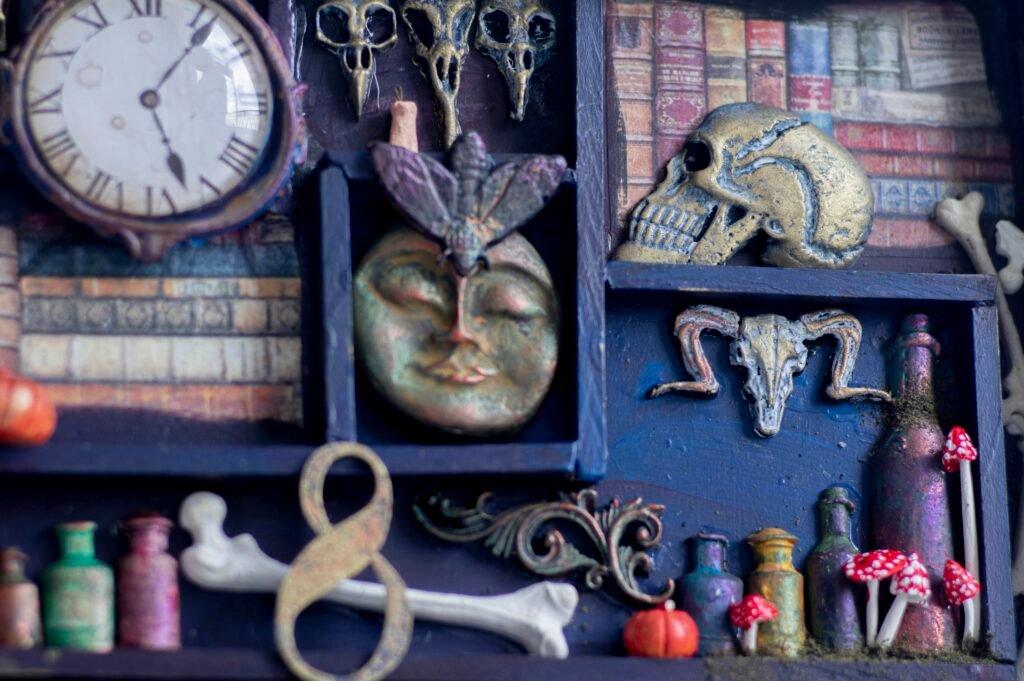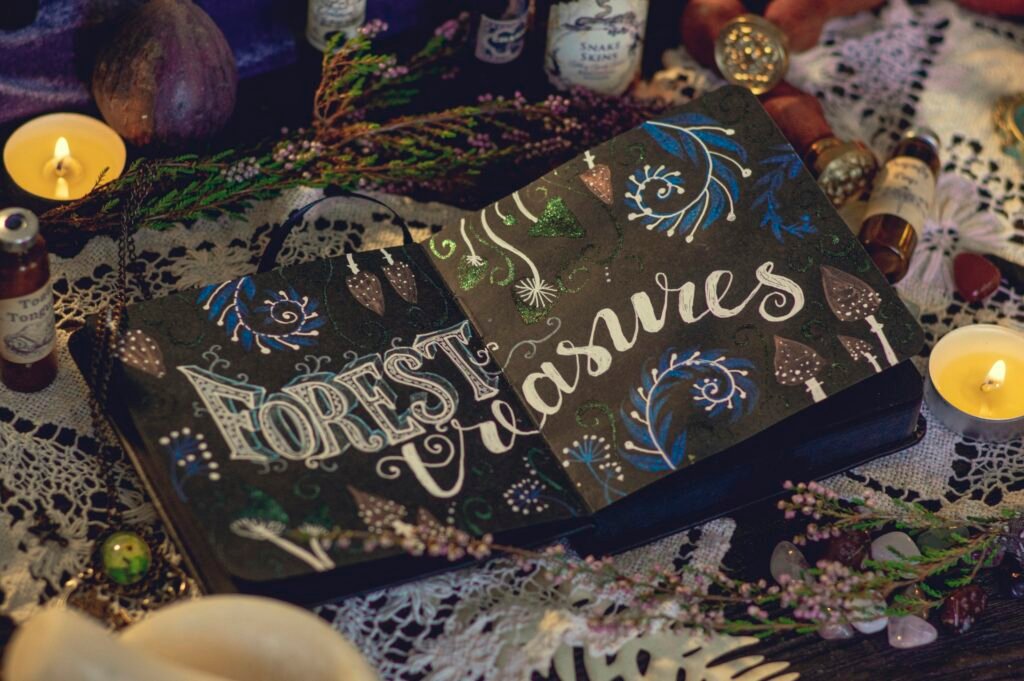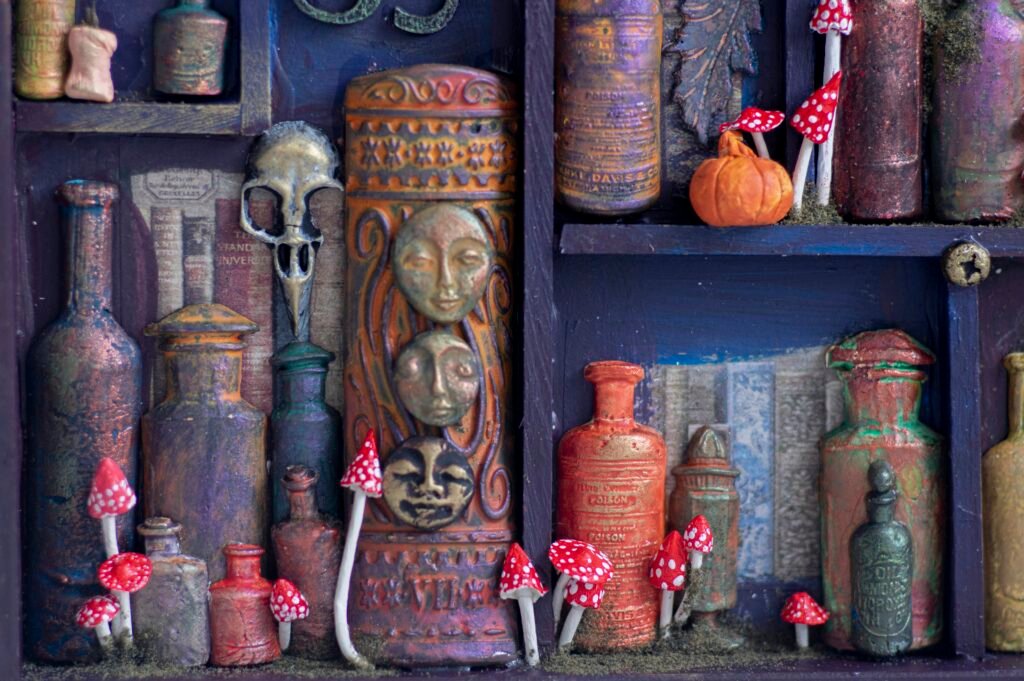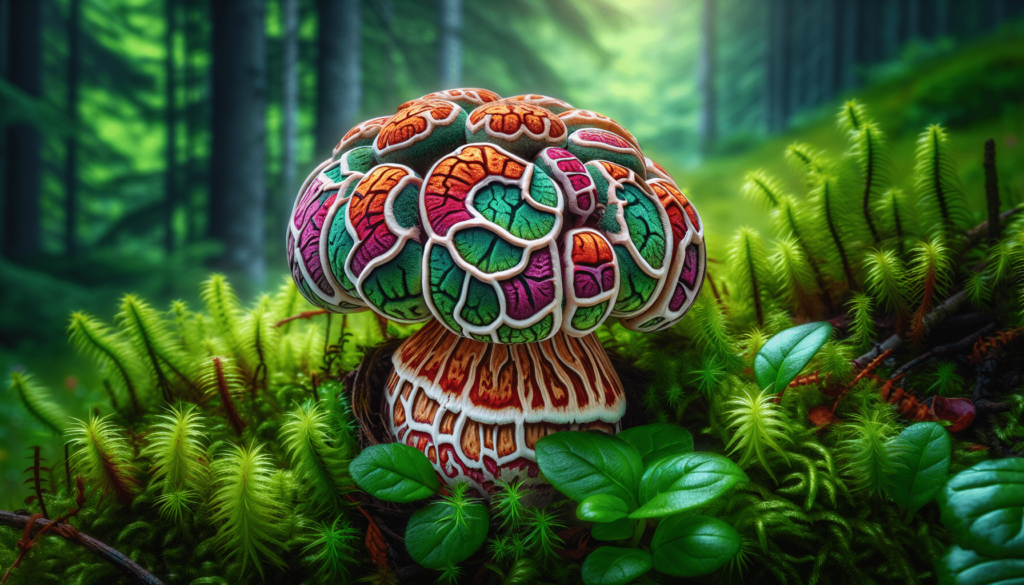You may have seen mushrooms pop up in your backyard or while hiking, but have you ever wondered which one stands out as the most beautiful of them all? In the article “Which Is The Most Beautiful Mushroom?”, you’ll embark on a delightful journey through the enchanting world of fungi. From the strikingly vibrant fly agaric to the delicate and ethereal porcelain fungus, you’ll discover the unique characteristics that make each of these mushrooms a true marvel of nature. Get ready to be enchanted by the stunning beauty hidden in the forest floor! Have you ever wandered through a forest and stumbled upon a mushroom so vibrant and picturesque that you had to stop and marvel at its beauty? If you’re anything like me, the sight of a striking mushroom amid a sea of green foliage can be nothing short of magical. With thousands of mushroom species around the world, each varying in color, shape, and size, it’s tough to pick just one as the most beautiful. So, let’s embark on a journey to explore the qualities and contenders for the title of “Which Is The Most Beautiful Mushroom?”

What Makes a Mushroom Beautiful?
Color and Vibrancy
Undoubtedly, one of the first things that catch your eye is the color. Mushrooms come in myriad hues that can be as vivid as a sunset or as subtle as a whisper. The trick is often in the way these colors contrast with their surroundings. A red cap amid green leaves or a white mushroom peeking out from dark, rich soil can make for a captivating sight.
Shape and Structure
Just as flowers wow us with their unique petal formations, mushrooms boast an array of intriguing shapes. From the classic cap-and-stem look to the intricate folds of coral fungi, the structure can significantly contribute to a mushroom’s beauty.
Texture and Surface
Textural quality adds another layer of allure. A velvety surface, a glossy finish, or even a hairy exterior can contribute to a mushroom’s overall aesthetic appeal. A closer look can reveal fascinating details that make each mushroom unique.
Gorgeous Contenders in the Mushroom Kingdom
Amanita muscaria (Fly Agaric)
Overview:
The Fly Agaric is perhaps the mushroom of fairy tales. With its red cap adorned with white spots, it stands out like a piece of art.
| Characteristic | Details |
|---|---|
| Color | Bright red cap with white spots |
| Size | Cap can grow up to 8 inches in diameter |
| Habitat | Typically found in coniferous and deciduous forests |
Mycena chlorophos (Bioluminescent Fungi)
Overview:
Ever heard of a glow-in-the-dark mushroom? Mycena chlorophos glows with an unearthly, greenish luminescence.
| Characteristic | Details |
|---|---|
| Color | Pale, luminous green |
| Size | Small, cap up to 1 inch in diameter |
| Habitat | Tropical and subtropical forests |
Lactarius indigo (Indigo Milk Cap)
Overview:
Imagine a mushroom that bleeds blue! This mushroom’s indigo color is nothing short of mesmerizing.
| Characteristic | Details |
|---|---|
| Color | Vibrant indigo blue |
| Size | Cap can grow up to 6 inches in diameter |
| Habitat | Frequently found in oak and pine forests |
The Science Behind Mushroom Colors
Pigments
Mushrooms derive their stunning colors from a variety of pigments, some of which serve crucial biological functions. For example, carotenoids contribute to yellow and orange hues, while melanins are responsible for darker shades.
Environmental Factors
The environment can significantly affect a mushroom’s color. Light, moisture, and soil composition often play a role in the intensity and variety of hues you see in mushrooms.
Spore Print Patterns
The color and pattern of a mushroom’s spore print can be unexpectedly beautiful. When the cap of a mushroom is placed gill-side down, it releases spores that create a print showcasing unique patterns and colors.
Unique Textures and Forms
Coral Fungi
Overview:
Resembling underwater coral, these mushrooms are visually striking due to their branching structures.
| Characteristic | Details |
|---|---|
| Color | Various, often white, yellow, or pink |
| Size | Can grow up to 6 inches tall |
| Habitat | Found in both deciduous and coniferous forests |
Hericium erinaceus (Lion’s Mane)
Overview:
With its cascading, icicle-like spines, the Lion’s Mane looks more like a work of art than fungi.
| Characteristic | Details |
|---|---|
| Color | White, sometimes yellowing with age |
| Size | Can grow up to a foot long |
| Habitat | Typically found on hardwood trees |

Mushroom Magic: Edible Beauties
Amanita caesarea (Caesar’s Mushroom)
Overview:
Not only is Caesar’s Mushroom beautiful, with its bright orange cap, but it’s also considered a delicacy.
| Characteristic | Details |
|---|---|
| Color | Bright orange cap with yellowish gills |
| Size | Cap can grow up to 6 inches in diameter |
| Habitat | Found in warm, Mediterranean climates |
Morchella esculenta (Morel Mushrooms)
Overview:
Morels are famous for their distinctive honeycomb appearance and are a favorite among gourmet chefs.
| Characteristic | Details |
|---|---|
| Color | Color ranges from gray to yellow to dark brown |
| Size | Can grow up to 4 inches tall |
| Habitat | Often found in deciduous forests during spring |
Conservation and Ethical Foraging
Leave No Trace
When foraging, it’s crucial to respect the natural habitat. Picking even a few mushrooms from a delicate ecosystem can have far-reaching implications.
Identification
Never consume a wild mushroom unless you are absolutely certain of its identity. Many beautiful mushrooms are also highly toxic.
Sustainable Harvesting
If you’re foraging for edible mushrooms, be mindful to leave enough for wildlife and to ensure mushroom populations can reproduce.

Exploring Through Citizen Science
Participation
Joining a local mycology club or a citizen science project can deepen your appreciation and understanding of mushrooms. These groups often organize guided walks and mushroom identification workshops.
Contribution
Contribute to databases that track mushroom species worldwide. Through platforms like iNaturalist, you can help build a global understanding of mushroom biodiversity.
Conclusion: Subjectivity in Beauty
Choosing the most beautiful mushroom is undeniably subjective. It depends on what qualities you find most captivating—be it color, shape, texture, or even the bioluminescence of a fungi. The mushroom kingdom is vast and varied, assuring that there’s a favorite for everyone.
So, next time you find yourself enchanted by a mushroom’s beauty, take a moment to appreciate the intricate details that make each species uniquely beautiful. Who knows? Your favorite mushroom might just be the one that someone, somewhere, deems the most beautiful in the world.

